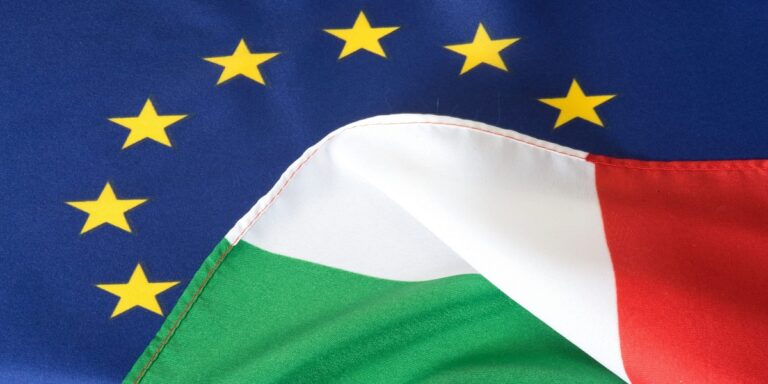On June 18, the Moldovan Ministry of Finance announced a proposal to raise the excise tax on e-cigarettes by 15%. This initiative aims to regulate the market, curb teenage usage, and address public health concerns. This article delves into the specifics of the proposal, its anticipated effects, and the broader context of e-cigarette regulation in Europe.
Details of the Proposed Excise Tax Increase
Tax Increase Overview
Current and Future Rates:
The proposal will increase the excise tax on each liter of e-cigarette liquid to 3,107 MDL (about $174.50) by 2025, marking a 417 MDL (roughly $23.43) rise from the 2024 rate.
Purpose of the Increase:
The main objectives are to regulate the e-cigarette market, reduce teenage usage, and address the health risks associated with e-cigarette consumption.
Economic and Public Health Context
Market Profit Margins:
Currently, low excise taxes result in high profit margins for disposable e-cigarettes in Moldova, making them easily accessible and appealing to minors.
Health Concerns:
Medical experts caution that e-cigarette use can negatively affect teenage brain development, leading to addiction and behavioral issues. The tax hike is seen as a measure to mitigate these risks.
Regional Trends in E-Cigarette Regulation
European Initiatives
Belgium:
Starting January 1, 2025, Belgium will ban the sale of disposable e-cigarettes, making it the first European country to receive such approval from the European Commission.
France:
France plans to ban disposable e-cigarettes in 2025 to address teenage usage and environmental concerns, highlighting an increasing focus on public health and sustainability.
United Kingdom:
Although no longer part of the EU, the UK has announced similar plans to ban disposable e-cigarettes, reflecting broader European regulatory trends.
Poland:
Investigations in Poland have revealed that many disposable e-cigarettes are imported from China, with significant market shares held by companies linked to Russia.
Impact of the Proposed Tax Increase
Market Regulation
Price Increase:
The excise tax hike will likely raise e-cigarette prices, reducing their accessibility and appeal to minors.
Profit Margins:
Higher taxes may lower profit margins for sellers, potentially decreasing the availability of disposable e-cigarettes in the market.
Public Health Benefits
Reduced Teenage Usage:
Making e-cigarettes less affordable aims to reduce teenage usage, addressing addiction and health concerns.
Behavioral Impact:
Lower availability and appeal of e-cigarettes to minors could help mitigate behavioral disorders linked to nicotine addiction.
Economic Considerations
Revenue Generation:
The increased tax could generate additional government revenue, which can be allocated to public health initiatives and regulatory enforcement.
Market Dynamics:
Sellers may adjust to the new tax structure, potentially leading to a decrease in high-risk product supply.
Challenges and Considerations
Enforcement
Online Sales:
Despite online sales being prohibited, social media advertisements for e-cigarettes persist. Effective enforcement of advertising regulations is crucial.
Compliance:
Ensuring compliance with the new tax regulations will require robust monitoring and enforcement mechanisms.
Consumer Awareness
Labeling and Education:
Improving labeling practices and educating consumers about the risks of e-cigarettes will support the tax increase’s goals.
Global Trends
Comparative Analysis:
Examining similar regulations in other countries can provide insights into potential outcomes and best practices for Moldova.
FAQs
What is the proposed excise tax increase for e-cigarettes in Moldova?
The proposal includes a 15% hike, raising the excise tax to 3,107 MDL (approximately $174.50) per liter of e-cigarette liquid by 2025.
How does Moldova’s excise tax on e-cigarettes compare to other European countries?
Moldova’s proposed tax increase aligns with broader European trends where countries like Belgium, France, and the UK are implementing stricter regulations and bans on disposable e-cigarettes.
Why is Moldova increasing the excise tax on e-cigarettes?
The increase aims to regulate the market, reduce teenage usage, and address public health concerns related to e-cigarette consumption.
What are the health risks associated with e-cigarette use among teenagers?
E-cigarette use can harm brain development, leading to addiction and behavioral disorders among teenagers.
How will the tax increase impact the e-cigarette market in Moldova?
The tax increase is expected to raise prices, reduce profit margins for sellers, and decrease the accessibility and attractiveness of e-cigarettes to minors.
What challenges might Moldova face in enforcing the new tax regulations?
Challenges include effective enforcement of online sales prohibitions, ensuring compliance, and improving consumer awareness about the risks of e-cigarettes.


















